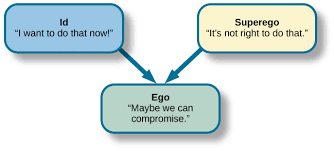Freud’s Theory of Personality Development and OCD
May 31, 2023
This assignment explores Sigmund Freud's Theory of Personality Development and its relevance to Obsessive Compulsive Disorder (OCD). Freud proposed a psychoanalytic theory that suggests that human behavior is the result of conflict between conscious and unconscious drives.
According to Freud, personality is composed of three components: the id, ego, and superego. The id is instinctual and irrational in nature and is driven by the pleasure principle. It seeks immediate gratification with little regard for consequences. The ego operates on the reality principle; it attempts to mediate between the demands of the id and the constraints of reality. Finally, the superego is responsible for morality and social conformity; it integrates values learned from parents or other authority figures into our personalities.

In the context of OCD, it is believed that the superego's strict adherence to rules or rituals can be overbearing and lead to obsessions and compulsive behavior. The ego attempts to manage these impulses but may be overwhelmed by their intensity; this can cause significant distress and interfere with daily functioning. Freud's theory suggests that psychotherapy, particularly psychoanalysis, might help relieve the symptoms of OCD by exploring the unconscious conflicts causing them. By gaining insight into these issues, patients can better understand and manage their thoughts and behaviors.
Ultimately, Sigmund Freud's theory of personality development offers an important framework for understanding Obsessive Compulsive Disorder. While other approaches have been developed since his time, Freud's insights remain relevant and can assist clinicians in treating this disorder.
